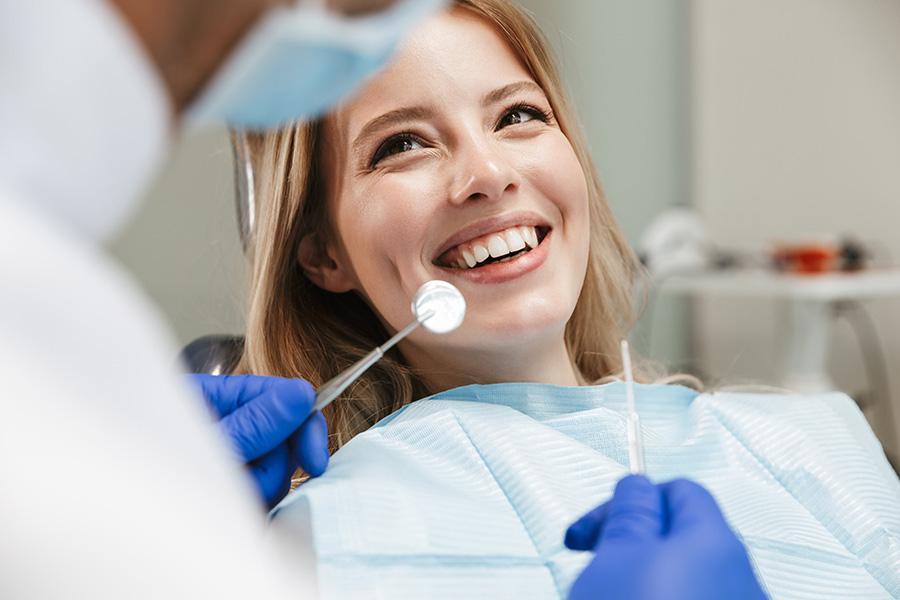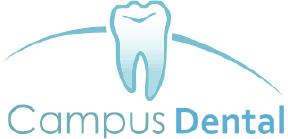Post Treatment Info
Home Care Instructions

After Cosmetic Dental Reconstruction
Because cosmetic dental procedures don’t significantly alter the underlying structure of the teeth, patients are often surprised by how “different” their mouth feels after undergoing dental bonding or veneers. Don’t worry – this is completely normal! It always takes a few days for the brain to recognize the thickness, shape, and position of altered teeth, and in the meantime, chewing and speaking may feel more awkward than you’re accustomed to. This feeling should wear off in about a week, after your brain has had time to adjust to your new bite. If your bite still feels improperly aligned (or you find chewing difficult) after a week, call our office at North Campus (Phone: 416-675-6622 x4166) or Lakeshore Campus (Phone: 647-351-9755) and we’ll schedule an adjustment appointment for you.
More rarely, patients experience mild tooth sensitivity (to hot and cold) or gum soreness after undergoing cosmetic dental work. Again, this is normal and nothing to worry about; the sensitivity is a result of your gums and dentin healing and adjusting to your new bite. To alleviate any discomfort, use floss and toothpaste designed for sensitive teeth and gums. You can also take an over-the-counter pain reliever and/or try rinsing your mouth with warm, salty water three times a day.
Even if your mouth feels uncomfortable, remember that it’s crucial to take good care of your new dental work. Don’t skip brushing or flossing during the week after your procedure, and remember that “capped” teeth are still vulnerable to decay over the long-term. Protect your cosmetic dental work by adhering to oral hygiene best practices and having regular dental exams and cleanings. We also recommend avoiding the consumption of potentially tooth-damaging foods, like popcorn, peanut brittle, and hard candies, and limiting things that may stain your teeth, such as smoking, coffee, tea, red wine, and dark berries.
Finally, be aware that some habits and activities run a high risk of damaging both natural and altered teeth, notably sports and tooth grinding (bruxism). If you play sports, let us know, and we’ll make you a custom mouthguard to protect your teeth. To address bruxism, we can create a night guard designed to prevent tooth grinding during sleep.
After Crown and Bridge Appointments
Dental crowns and dental bridges are typically completed and placed over the course of two to three appointments. Initially, Dr. Trotti takes impressions of the patient’s teeth (known as a dental mold) and prepares the teeth to receive a crown or bridge. Then, the prepared teeth are covered and protected with a temporary crown or bridge while the permanent restoration is being manufactured.
Temporary crowns and bridges aren’t as strong as their permanent counterparts. For this reason, we advise patients to avoid chewing gum, eating hard foods, or chewing sticky foods or candy while wearing a temporary crown or bridge. (If possible, we suggest chewing on the other side of your mouth as an added precaution.) Similarly, although it’s important to brush and floss while your temporaries are in place, you should take care not to brush too vigorously or “tug” on floss. If a piece of floss gets stuck near your temporaries, gently pull it through the gap between your teeth; don’t yank it upwards.
If your temporary crown or bridge becomes dislodged, call our office immediately. (North Campus phone number: 416-675-6622 x4166 or Lakeshore Campus phone number: 647-351-9755.) We’ll arrange an appointment to have the temporary crown or bridge re-cemented as soon as possible. Prompt attention is critical because temporary placements protect the fragile dentin and pulp of your tooth from bacteria and injury. They also stop your teeth from shifting out of position before your permanent dental restoration is installed.
After your permanent crown or bridge is placed, you may notice that chewing and speaking temporarily feel different, or that your teeth are more sensitive to heat, cold, and pressure. This is to be expected, and you should adjust to the feel of your restored teeth in about a week. If your bite still feels uneven a week after your final appointment, or you’re experiencing lingering discomfort, call our office to arrange an adjustment appointment. You can reach our North Campus office at 416-675-6622 x4166 or our Lakeshore Campus office at 647-351-9755.
After Tooth Extraction
After your anesthetic wears off, you will probably feel some mild to moderate soreness around the extraction site and experience some facial swelling. To prevent pain, we recommend taking your prescribed pain medication while your face is still slightly numb, and to continue taking it on schedule, as directed by your dentist. You can also hold an ice pack or unopened bag of frozen peas or corn to your face to reduce swelling. Apply the ice pack to the swollen side of your face three times a day for two days. If you have also been prescribed antibiotics to prevent infection, remember to take them as directed until they’re completely finished. (Never stop antibiotic treatment early, even if you feel better.)
To increase comfort and accelerate healing, rest for at least three days after your tooth extraction, drink lots of fluids, and eat soft foods, like bananas, pudding, and oatmeal. Once 24 hours have passed, you should resume brushing and flossing your teeth to prevent the buildup of plaque and bacteria; however, you should continue to exercise caution when brushing near the extraction site.
If your pain medication isn’t working, you notice soreness or swelling getting worse after three days, or your socket starts bleeding again, call our office for advice. You can reach our North Campus office at 416-675-6622 x4166 or our Lakeshore Campus office at 647-351-9755.
After Composite Fillings (White Fillings)
After the anesthetic wears off, you may notice some mild soreness around your injection sites and/or minor tooth sensitivity. This is a normal part of healing, and in most cases, it resolves within a few days. Feel free to take an over-the-counter pain reliever, such as Tylenol, to alleviate any discomfort you experience after a dental filling. If your tooth still feels very sensitive after a week, or you notice increasing pain, contact our office for advice. You can reach our North Campus office at 416-675-6622 x4166 or our Lakeshore Campus office at 647-351-9755.
If your tooth isn’t sensitive, you can resume eating hard foods as soon as your anesthetic completely wears off. Dental fillings are placed and set in a single appointment, so they’re ready for use as soon as you return home.
After a dental filling is placed, you may notice that chewing and speaking temporarily feel different. This is normal, and you should adjust to the feel of your restored tooth (or teeth) in about a week. If your bite still feels uneven a week after your filling is placed, or you’re experiencing discomfort, call our office to arrange an adjustment appointment. You can reach our North Campus office at 416-675-6622 x4166 or our Lakeshore Campus office at 647-351-9755.
Infection Control
Specifically, Dr. Trotti (and our entire team) follow all of the procedures recommended under the Occupational Health & Safety Act (OHSA), the Regulated Health Professions Act (RHPA), and Infection Prevention and Control Canada (IPAC CANADA). These measures include:
-Frequently washing our hands with disinfectant hand soap
-Wearing gloves and face masks throughout appointments
-Disinfecting countertops and surfaces between procedures & between patients
-Sterilizing all of our reusable equipment, including dental hand pieces, before every use & between patients
-Where possible, using disposable materials
In dentistry, a device known as an “autoclave” is used to sterilize reusable equipment. Instead of relying on chemicals to disinfect surfaces, an autoclave kills bacteria and viruses using steam, heat, and pressure.
If you have any questions about our infection control practices, feel free to review them with us over the phone or during your appointment. We’ll be happy to discuss our hygiene methods with you, as we want you to feel completely comfortable visiting our office.
Book an Appointment at Campus Dental
At Campus Dental, we understand that undergoing dental treatment can be intimidating – that’s why we make every effort to keep our patients comfortable before, during, and after their dental procedure. Arrange an appointment today to discover our gentle, compassionate approach to dentistry.

